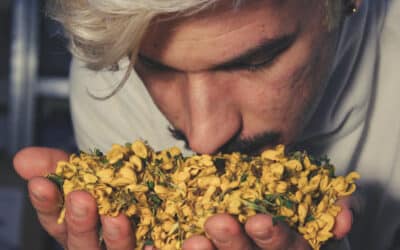Food quality is commonly confused with food safety. But, while the two are undoubtedly linked to each other, they have some important differences. And, these differences are important to understand – since, as a food-focused organisation, you’ll have to ensure that your products are up to standard in both aspects with food safety and food quality compliance testing.
Food Safety
Do you know what food safety really is? Lots of people don’t.
Essentially, food safety is related to the dangers or risks that may be detrimental to the health of the consumer in some way. In other words, making use of strong food safety practices will ensure that your products do not get contaminated and thus cause various illness or spread food-borne diseases to the public.
What food safety procedures should you follow?
Some food safety procedures apply across the board, as they are mandated by the law. However, other food safety procedures will differ across company and industry.
The main procedures you need to be aware of, and ensure that you comply with, are related to risk identification, pest control, waste management, and hygiene.
What is food safety compliance testing?
Essentially, food safety compliance testing is having a microbiology lab test done on your products. In this test scientists will look for harmful pathogens, microorganisms and bacteria in your goods. They are also able to identify viruses and animal DNA if they are present.
Food Quality
This is the one that people often get confused about – food quality, and food quality compliance testing. So, let’s clear it up.
The quality of food is related to characteristics of the product that might affect its value to the customer. A product that has high food quality is acceptable to customers and meet their expectations.
Several factors contribute to food quality, for instance:
- Spoilage
- Discolouration
- Odours
- Origin
- Flavour
- Texture
- Method of processing
- Appearance
Two other – highly significant – elements of food quality are accurate labelling and the traceability of the food product.
What food quality procedures should you follow?
The procedures for food quality compliance are slightly less defined than the rules for food safety. Despite this, there are still processes to follow.
For instance, you should have an approved supplier list as this will help you with traceability. Having a good system for tracking your progress in your own organisation can also help in this regard.
Another example of an effective food quality procedure is to be diligent with your ingredients list – the list should be extensive and accurate and include shelf-life, storage instructions and composition, amongst other things. This will be greatly helpful when creating accurate labels for your products.
What is food quality compliance testing?
The methods of food quality compliance testing are different to food safety testing.
To determine the quality of food, you may need to have your product examined in a chemistry lab. At this lab, scientists will determine the physical and chemical components of your product. From here, they can conduct an analysis on your nutritional labels. This type of test may also be useful to test for food spoilage.
On the other hand, a physical inspection may be conducted to verify that products are free of unpleasant odours and discolouration.
Food quality compliance testing gives you insight into the value of your product to the customer – it gives you an idea of whether the consumer will be happy with your product or not.
In Conclusion
A simple way to remember the difference between food safety and food quality is that one ensures that your consumers are safe and the other ensures that your customers are satisfied. And, being able to easily differentiate between the two means that you can effortlessly determine what type of testing you need – if not both. Contact AssureCloud to find out more about our food testing services.



